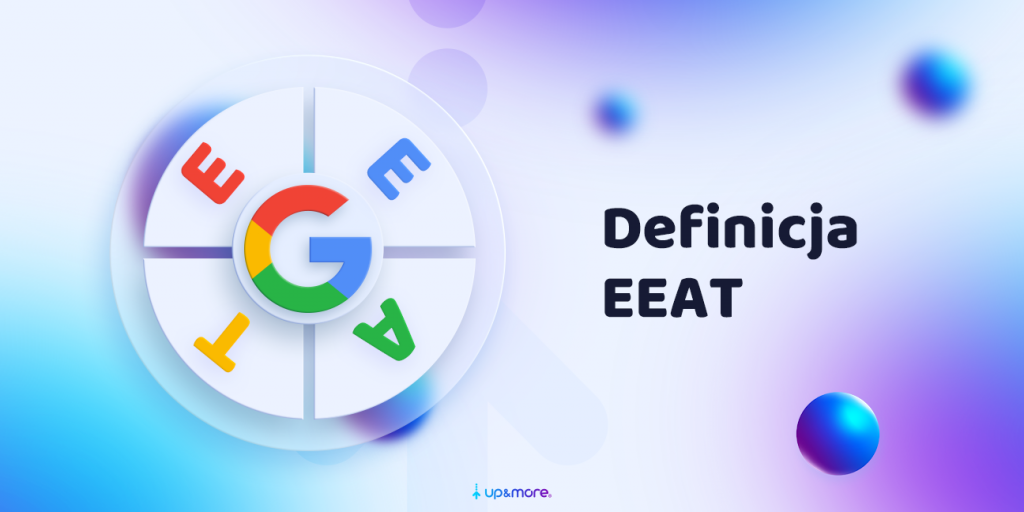Table of contents
EEAT is an acronym for Expertise, Experience, Authoritativeness, and Trustworthiness. These are the four key elements that search engines use to evaluate the quality of a website. Google’s algorithm considers these factors when ranking sites in search results.

- Expertise refers to the knowledge and experience of the person or team developing the site. It can be demonstrated through the publication of expert articles, participation in industry conferences, or possession of graduate degrees.
- Experience refers to the experience of the person or team developing the site in a particular field. It can be demonstrated by the number of years working in the industry, the number of projects completed, or the number of awards received.
- Authoritativeness refers to the site’s reputation among users. The number of visits, backlinks and positive reviews can demonstrate it.
- Trustworthiness refers to the trust that users have in the site. This can be demonstrated through the use of SSL encryption, privacy policies, and refunds.
Create EEAT-compliant content on your website
With each passing year, Google is becoming more stringent in evaluating the quality of sites and whether they contain valuable content. The concept of EEAT and several guidelines associated with it were created as guidelines to help create content that builds trust with users.
In its Search Quality Evaluator Guidelines document, Google presents us with a series of questions we should answer as content creators for websites. These questions are divided into two main groups – those related to content quality and those related to content credibility. You can review the list of questions at developers.google.com
The first group of questions listed can be summarized as follows – high-quality content according to the EEAT rule that the search engine gives preference to is that which is:
- 100% Original
- created using reliable sources
- comprehensive, helpful, interesting
- stylishly and orthographically correct
- those that users want to share with others
- editorially correct
- content is published to convey something, not in a mass and random manner
The second of the aforementioned group of questions concerning credibility specifies that credible content is content that:
- contain evidence of knowledge in a particular area
- answer the user’s questions in such a way that they can trust us
- the content creator is an expert in the field or has sufficient experience
- do not contain factual errors that are easy to verify
Creating content in „Your Money or Your Life” topics – YMYL
Several years ago, to protect search engine users from consuming content with questionable credibility that could affect important decisions they make on life topics, Google created the concept of Your Money or Your Life (YMYL for short) pages. It is a way of classifying websites that cover important topics such as health, finance or personal comfort.
These very specific guidelines aim to ensure that only sites with a high level of authority on a given topic and whose authors have experience related to the field will rank high in search results.
When running an online store or a website that clearly falls into the YMYL category, to gain and maintain a high page ranking for the keywords you are interested in, you must take special care with the quality of your content and create it according to EEAT principles.
The importance of the author in content creation
The authority of the author is the most important factor in ensuring the substantive accuracy of content on websites. Google evaluates the quality of a website indirectly through the credibility of whoever signs off on its content.
Therefore, the texts added to your site should contain information about their author – this must be someone with a good reputation within the field and experience that can be easily confirmed in a Google search (ideally, the article itself should contain links to such additional information).
Google also leaves us a gateway if we want to generate content using AI. It turns out that Google’s algorithm will not penalize such content if we independently check its factual correctness and sign it as created by artificial intelligence.
If we want to generate content with the help of AI, we can use Google’s algorithm.
Reasons to create content for websites
Google also asked us why we create and publish content online. Here, the correct answer has to be only one – we want to communicate something interesting and valuable to other search engine users.
Google clarifies that the content you add to your site must not be created solely for SEO purposes, especially if they are YMYL pages.
Summary
To improve your site’s EEAT, you should focus on the following actions:
- Publish high-quality content that aligns with the interests of your target audience.
- Participate in industry events and forums where you can share your knowledge and experience.
- Participate in industry events and forums where you can share your knowledge and experience.
- Gain backlinks from other sites that are considered authorities in your industry.
- Apply SSL encryption, privacy and refund policies to ensure user security and comfort.
By improving your site’s EEAT, you can improve its ranking in search results and increase the number of visitors.
Was the article helpful?
Rate our article, it means a lot to us!
Let's talk!
She has 11 years of professional experience, she started her career at the Emarketing Experts agency as a junior SEO specialist. In addition to website positioning, she was responsible for conducting 360° marketing projects as an Account Manager at They.pl. She worked for companies from the financial sector (Bank Millennium, Bank Meritum, Finai S.A.) and e-commerce (e.g. Black Red White, Autoland, Mumla). At Up&More, he is responsible for, among others, SEO projects for Panek Car Sharing, Amerigas, Interparking, H+H and Autoplaza.